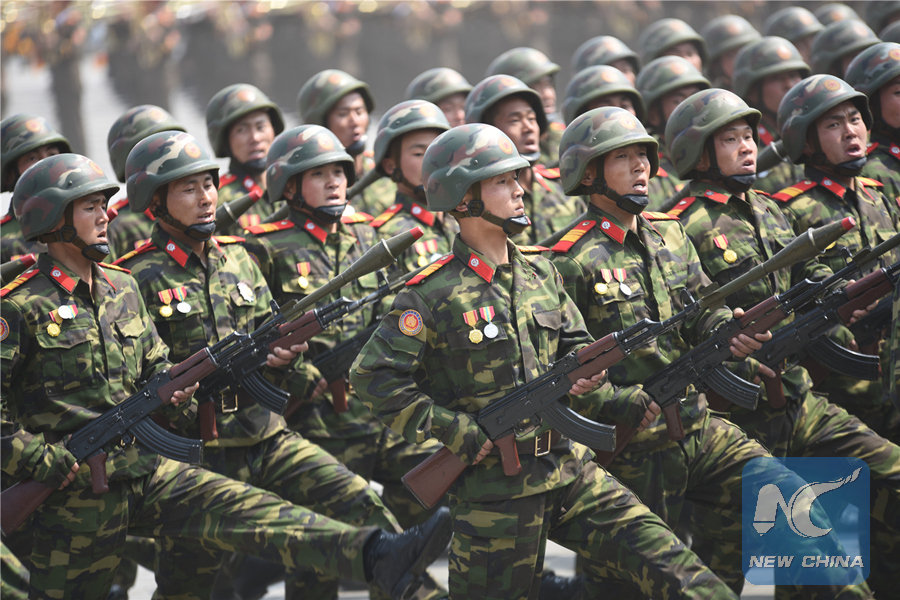
Soldiers attend a military parade in central Pyongyang, April 15, 2017. The Democratic People's Republic of Korea (DPRK) Saturday showcased its military muscles by parading all of its most-advanced ballistic and tactic missiles, including a submarine-launched ballistic missile which could strike targets 1000 km away. (Xinhua/Cheng Dayu)
Hi, here's what you need to know about China.
HARBIN -- A freight train route has been put into operation between northeast China's Heilongjiang Province and Belarus, taking around half the transportation time of the traditional sea route.
A train departed from Harbin, capital of Heilongjiang, earlier this month and will travel nearly 10,000 kilometers in around 16 days before reaching Minsk, capital of Belarus, according to Harbin government.
----
BEIJING -- As China continues its moves to contain leverage and financial risks, its growth may slow, but a steep decline is unlikely due to a buttressing effect from reforms and burgeoning new growth drivers.
Fresh data showed that despite an overall picture of stabilizing growth, signs of weakening momentum have emerged in the Chinese economy, stoking concerns that the rebound has lost steam and may slip into a hard landing.
---
BEIJING -- When the Dragon capsule docks with the International Space Station (ISS) on June 6, devices from China for the country's first scientific research project will go aboard the ISS.
The project between the Beijing Institute of Technology and NanoRacks, a U.S. firm, aims to investigate how the space environment affects DNA, said Deng Yulin, a life science professor with the institute who leads the research project, on Sunday.
---
SINGAPORE -- The relevant parties at the 16th Shangri-La Dialogue, particularly China, here on Sunday urged the adoption of diplomatic means instead of military or economic punishment to finally solve the nuclear threat on the Korean Peninsula.
The crux of the nuclear crisis is Washington and Pyongyang's mistrust to each other, pointed out He Lei, head of the Chinese delegation to the dialogue who also serves as vice president of the Academy of Military Science of the People's Liberation Army of China (PLA).

